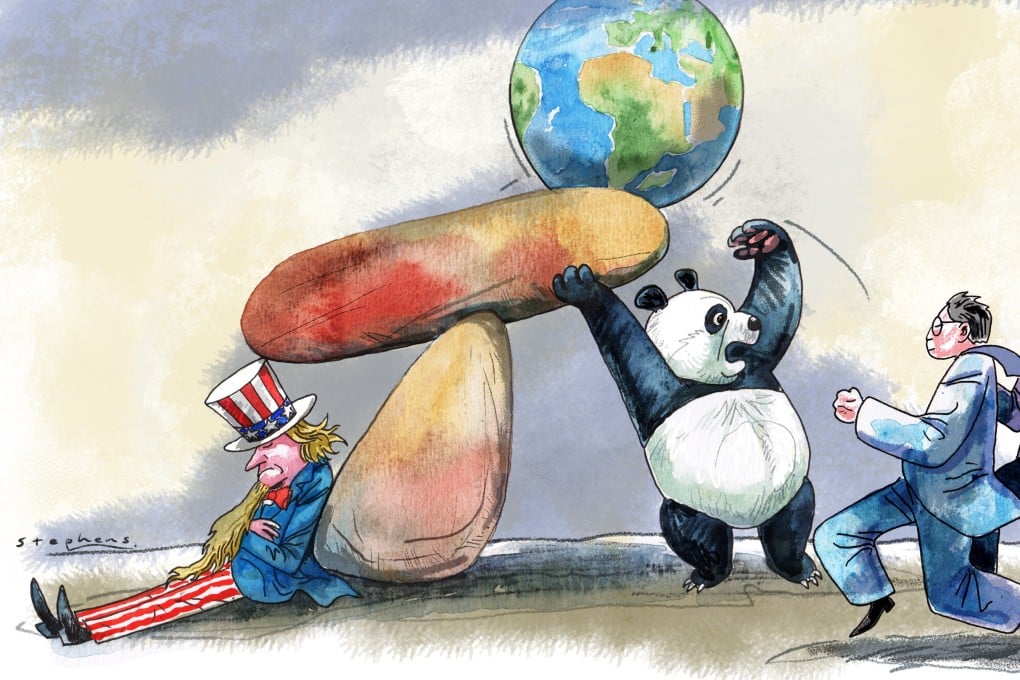Opinion | China must become a central player to stabilise crumbling world order
- China is the embodiment of an alternative to the liberal-democratic, free-market model championed by the West
- As such, it must help shape a new order through trust and cooperation and by remaining open to dialogue, particularly with the US and Europe, to end the spiral of war and crises

To say that the world is changing quickly is both a cliché and an understatement. More often, however, the focus of global change is on the progress it brings – how new technologies and ideas enable an increase in growth, efficiency, understanding and standards of living. But, too often, the darker side of change – namely, the increase in global disorder as new challenges come into play – is ignored or downplayed.
The growing speed and severity of these crises is, in large part, due to the decades-long weakening of the pillars that support international order. Every time a new crisis emerges, the international community despairs, increasingly unable and/or unwilling to cooperate for a solution. The result is that more crises are unresolved, further weakening the reputation of organisations such as the United Nations, World Bank and International Monetary Fund.
Today, the internationally agreed rule of law and informal “common rules” of global politics have never looked so shaky. Never has the established order been so heavily contested, criticised and distrusted.
